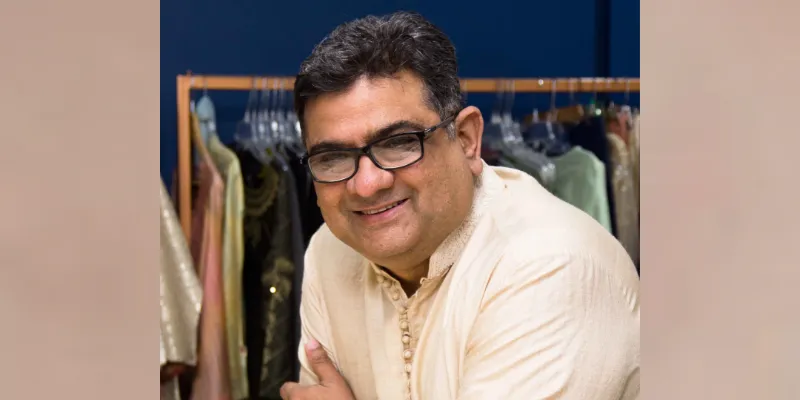How this all-women team is designing minimalist artisanal clothing for modern Indian women
Launched on National Handloom Day this year, Nylangan offers Indo-western apparels made from natural materials like cotton and linen, priced between Rs 1,699 and Rs 3,499.
Entrepreneurship is bringing more traditional handlooms and textiles to the forefront, giving visibility to long-forgotten art and craft. Although marred by challenges, many entrepreneurs are choosing the path of connecting artisans across India with the urban population, with many designer twists.
In 2019, Ameet Panchal too began conceptualising a natural clothing brand and launched Nylangan Hindustan on August 7, 2020, on National Handloom Day.
Valued at $100 billion in 2019, the Indian textile and apparel industry is expected to reach $220 billion by 2025, according to India Brand Equity Foundation. It is fuelled by 4.5 crore workers, including 35.22 lakh handloom workers across the country.
An all-women team
Ameet says Nylangan was founded on the belief that fashion should be personal. It boasts of an all-women team that efficiently handles all operational aspects from creating a brand identity to fashion designs, marketing and communication with the weavers.
With a team that knows the pulse of Indian women’s needs, Nylangan claims to design Indo-Western garments that complement all body types, sizes, suitable for women of all age groups. It has launched two collections, Aranya which has nature-inspired warm colour palette and Wildflower features intricate embroidery on soft pastel-coloured garments.
Priced between Rs 1,699 and Rs 3,499, it offers tunics, jackets, kurta, dresses, pants, and skirts made of breathable fabric like cotton and linen.
Ameet says, “A lot of effort is put into garment construction and developing the fabric to ensure quality. Nylangan is designed and developed as an ode to the passionate team of non-conformist women who are at the helm of our brand.”
Having entered the market amid the pandemic, the B2C brand has focused on gaining traction online through social media marketing. Besides its own website, it is present on ecommerce platforms like TataCliQ, Myntra, and Ajio as well as a few brick-and-mortar stores in Mumbai, Kolkata, and New Delhi.
“We were quick to ramp up our ecommerce platform and marketplace presence to be available online, which is a safer shopping option now,” he says. The founder believes consistency is the key when it comes to customer engagement and brand awareness.
Adapting to change

Ameet Panchal, Founder of Nylangan
Ameet says it is too early for the startup to draw conclusions on growth and traction. “As the business matures and we have a track record, we will consider raising money for expansion into other categories,” he adds.
The entrepreneur holds a unique view of competition across the industry that’s not just restricted to the clothing and apparel sector.
Ameet says, “We want a share of the customer’s wallet and therefore competition is from all categories which influence the customer’s spending pattern. Our challenge is to be in the customer’s mind space at all times when a decision to buy a fashion garment is made.”
This becomes increasingly relevant amid COVID-19 when consumers are mindful of spending less and saving for future uncertainties.
As shopping patterns change, he says Nylangan is leveraging market learnings – and designing garments that are interchangeable as work wear, loungewear, and suitable for special occasions as well.
As the crisis prevails, the startup will continue to study changing patterns and make necessary changes, depending on customer shopping behaviour as a key factor.
Even among its employees, he emphasises that openness and adaptability to change are the rules he follows. The same goes for stakeholders like supply chain management, vendor partners, and investors.
Moving ahead, Nylangan hopes to increase its product offering and become a flagship brand in the natural clothing space. Ameet shares that focus, perseverance, and resilience are important for entrepreneurs to overcome any kind of challenge.
Edited by Rekha Balakrishnan









